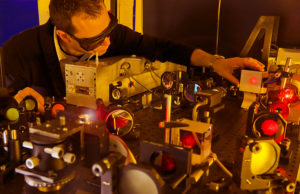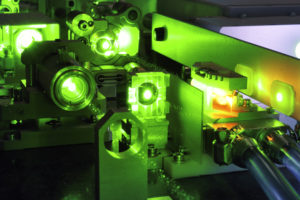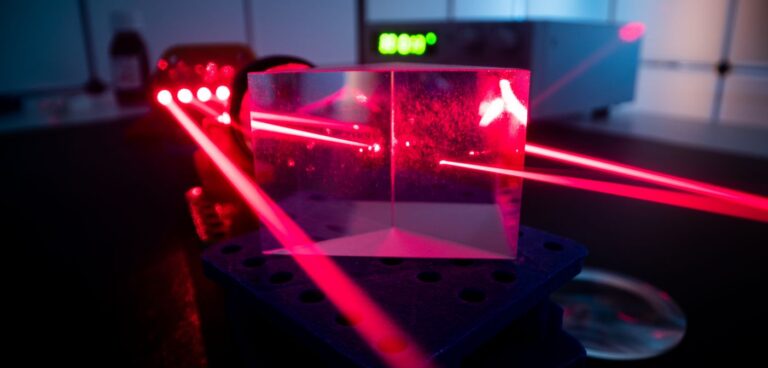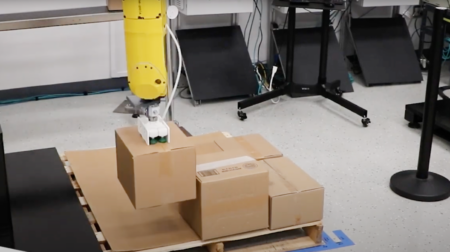Researchers at the National Robotarium, hosted by Heriot-Watt University in Edinburgh, have secured £586,000 to develop 3D laser beams whose shape can be changed.
According to the team, the innovation is set to transform the manufacturing and healthcare technology industries, making it easier and cheaper to produce products that require highly-precise manufacturing, such as medical equipment and mobile devices.
The funding from the Engineering and Physical Sciences Research Council (EPSRC), part of UK Research and Innovation, will support the research and development of the lasers for industry application, accelerating the commercialisation of the technology for the benefit of businesses and the wider UK economy.
UK government minister for Scotland, Iain Stewart said: “This is cutting-edge technology in every sense of the phrase. These 3D lasers are set to unlock previously unheard-of levels of precision and so transform our manufacturing and medical technology industries, boosting the UK’s global reputation for innovation and attracting jobs and further investment.”

The research will develop laser beams which have been specifically designed to meet the exact manufacturing requirements of products, designed to improving efficiency and precision.
This new technique could be harnessed to improve how holes for sensors and cameras on smartphone screens are drilled and to increase the density of information on semiconductor chips, helping to keep up with the ever-increasing demand for more memory in devices.
Medical applications could include cancer surgery, where it is hoped more precise medical instruments could allow the resection of tumours without removing healthy surrounding tissue. In an academic partnership, the project’s research into this kind of medical application will be supported by the University of Leeds.

Other examples include fabricating waveguide devices to support telecommunications and the internet, microscopy and even astronomic telescopes.
Richard Carter, assistant professor of applied optics and photonics at Heriot-Watt University and the project’s lead, said: “Manufacturing is of key strategic importance to the UK, with a particular focus on high-tech and high-value manufacturing.
“This research will address the priority area of digital manufacturing, enabling a bespoke, rapid response capability for the first time. The new methods we are developing represent a paradigm shift in the capabilities of laser-based manufacturing, making it possible to move between 3D beam shapes with zero down-time, low cost and minimal technical know-how.
“Through collaboration with our industry partners, we’ll be able to develop the lasers in line with what industry needs, providing solutions to manufacturing challenges across a wide range of sectors.”








